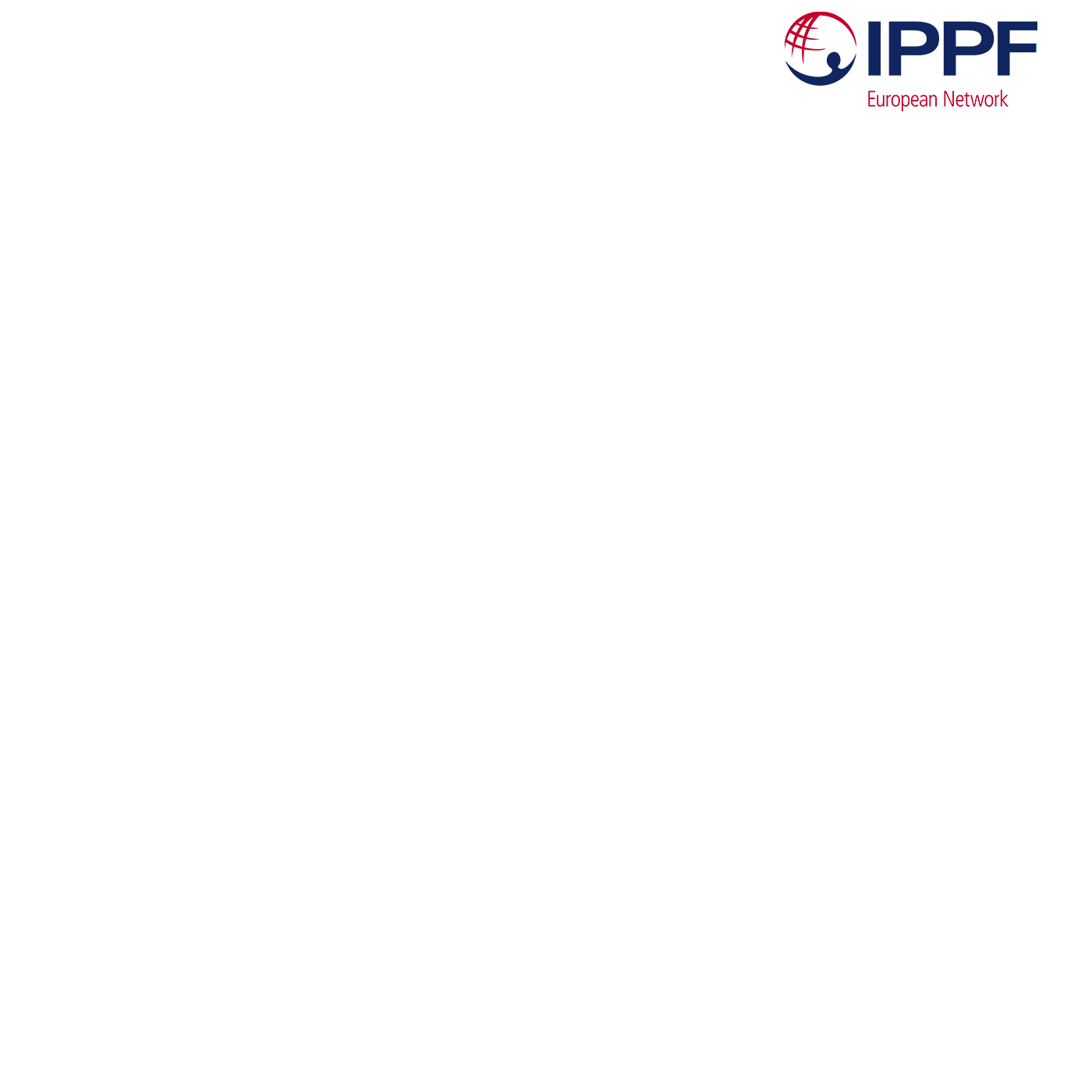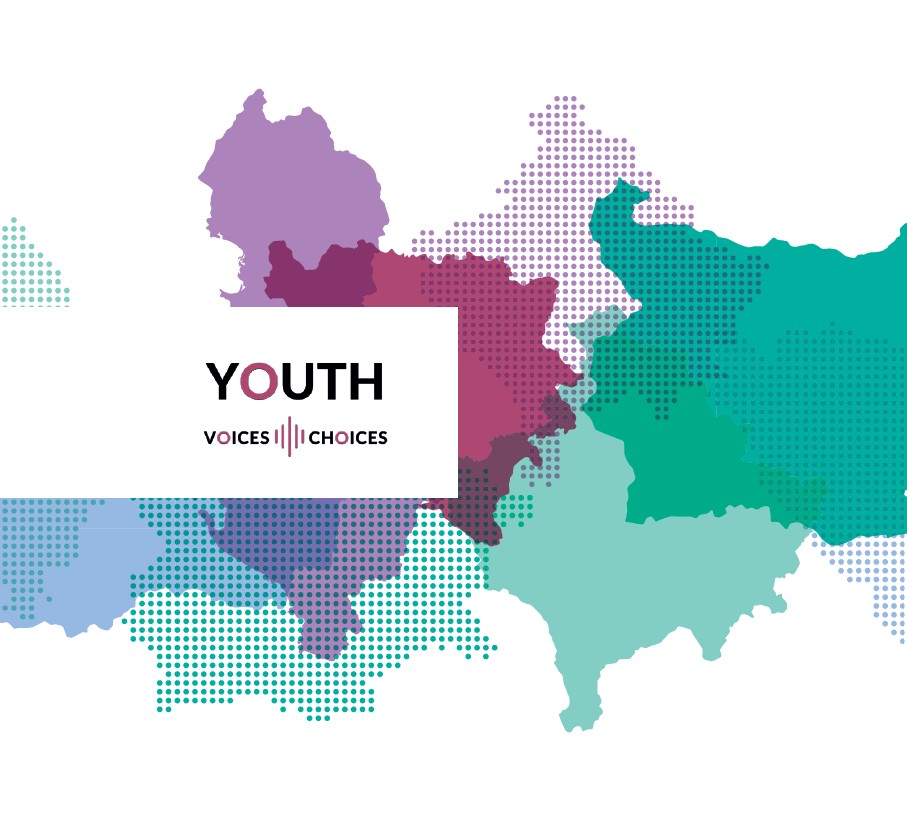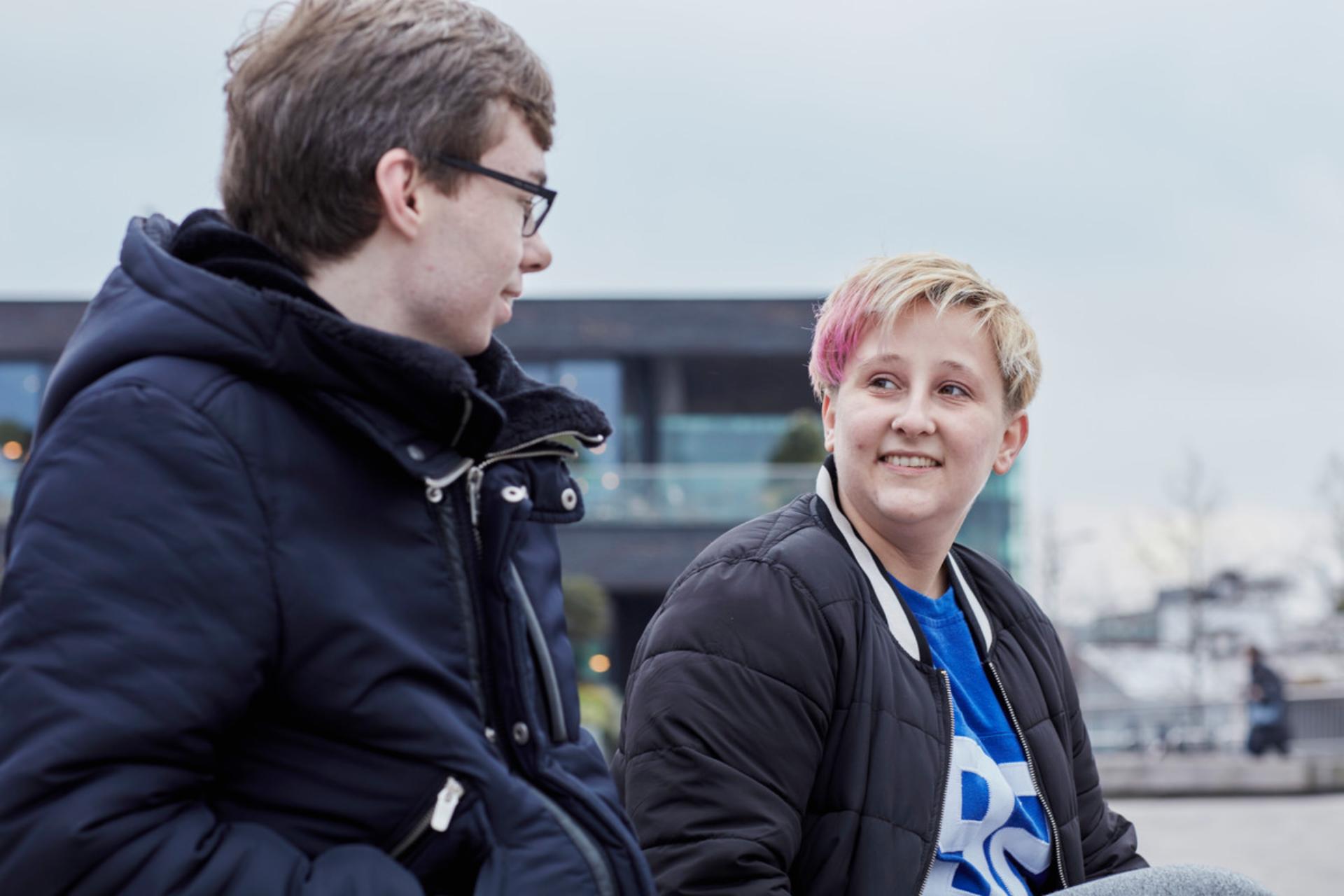Spotlight
A selection of resources from across the Federation

2022 IPPF EN Annual Report
Download our Annual Report to read about our activities and achievements in 2022.
Filter our resources by:


| 14 January 2022
Nadia: “There Is Hope For A Better Future For Women In Poland.”
Human rights defenders in Poland have been working tirelessly for years to fight the dismantling of the rule of law and human rights. They continue to do so in the face of increasing oppression, orchestrated and encouraged by the government – including intimidation, detention, and criminal charges. Many have been subjected to threats and attacks, both from state actors and far-right groups. Nadia, 21 years old student from Poland, is the target of visceral personal attacks online, unrelenting violent behaviour, sexism & discrimination. All because she stands for reproductive freedom & equal pay. But Nadia believes activism can change the world. More about Nadia and on how to donate to women human rights defenders in Poland.

| 14 January 2022
Defend the Defenders in Poland - donate
Human rights defenders in Poland have been working tirelessly for years to fight the dismantling of the rule of law and human rights. They continue to do so in the face of increasing oppression, orchestrated and encouraged by the government – including intimidation, detention, and criminal charges. Many have been subjected to threats and attacks, both from state actors and far-right groups. The Polish Women’s Strike and other organisations have received bomb threats and now need to have security at their buildings. Activists are also being targeted with smear campaigns in state-owned media. The actions of the police have been insufficient to ensure their protection. Donate to support legal assistance in court cases and psychological assistance for human rights defenders: https://defendthedefenders.eu/donate/

| 14 January 2022
European abortion policies atlas
The joint EPF-IPPF EN “European Abortion Policies Atlas” scores 52 European countries and territories on legal frameworks to access safe abortion care and clearly shows that Europe is not as progressive as it might seem. This first in-depth analysis of abortion policies across Europe finds that legislation on abortion care throughout the region is a diverse legislative and administrative patchwork - the consequence being that women’s experience of abortion care largely depends upon their postcode: 31 countries don’t include abortion in the national health system’s financial coverage - this penalises all women and girls, but specifically the vulnerable (e.g. low income, living in rural areas, Roma, sex workers and undocumented migrants). 19 countries, including several known for progressive stances, force women to endure medically unnecessary requirements before accessing abortion care (compulsory and sometimes biased counselling, forced waiting periods). A safe, voluntary abortion should not be treated as a crime. And yet, 16 countries in Europe regulate abortion care primarily through their criminal and/or penal code. 26 countries allow health workers to deny care on the basis of their personal beliefs or convenience, thus potentially placing women in serious danger. 18 European countries fail to provide people with clear and accurate information about abortion care. Governments have a responsibility to safeguard the right of women and girls to lead free and safe reproductive lives without discrimination and coercion. We call on governments to: Modernise abortion laws (decriminalise abortion laws, extend time limits) Ensure that abortion care is covered by the national health system Remove unnecessary obstacles in accessing abortion care following WHO recommendations Prohibit health providers from legally opting out of any part of the full spectrum of reproductive health care Provide accurate information about abortion care.

| 14 December 2020
Concerns regarding the rule of law and human rights in Poland (letter to the European Commission)
Civil society sent a letter to EU Commissioners to raise concerns regarding the deterioration of the rule of law and fundamental rights in Poland. In light of recent developments and continued and persistent attacks against the rule of law and human rights in Poland, we believe it is critical for the European Commission to issue an update to its Reasoned Proposal under Article 7(1) of the Treaty on European Union (TEU) expanding the scope of the ongoing procedure to include violations of EU values as set out in Article 2 TEU. We commend the European Commission’s efforts to hold the Polish government to account for violations of EU law. Further action, however, is urgently needed, on account of the continued deterioration of the rule of law and fundamental rights in Poland, and repeated failures by the Polish government to comply with the Commission’s Recommendations and with the decisions of the Court of Justice of the European Union (CJEU). We now respectfully request the European Commission to: issue an update to its Reasoned Proposal of December 2017 to extend EU scrutiny to recent developments and all Article 2 TEU violations; urge the Council to move forward with the ongoing procedure under Article 7(1) TEU, as requested also by the European Parliament in its September 2020 resolution;[1] call on Poland to implement all previous Commission Recommendations and CJEU decisions, and to restore the independence and legitimacy of the Polish judiciary, including the Constitutional Tribunal, without further delay. For more information on the context in Poland please read the full letter above and the related content. [1] European Parliament resolution of 17 September 2020 on the proposal for a Council decision on the determination of a clear risk of a serious breach by the Republic of Poland of the rule of law (COM(2017)0835 – 2017/0360R(NLE)), https://www.europarl.europa.eu/doceo/document/TA-9-2020-0225_EN.pdf.

| 06 August 2020
End reproductive coercion
Access to abortion care underpins women and girls’ reproductive health. And yet around Europe and Central Asia, they are faced with obstacles that threaten their safety, dignity and freedom. Governments and the international community should work to safeguard the right of women and girls to lead free and safe reproductive lives without discrimination and coercion.

| 02 July 2020
Italian activists win on abortion care
Abortion in Italy was legalized in 1974. It was the result of a power struggle for safe abortion between the women’s movement, conservative forces and the Vatican. The text of the Law (N 194) seems liberal and quite progressive but in reality, the feminist victory was not enough to ensure women’s access to care. Activists have been fighting for a long time to make sure women and girls in Italy have access to safe, dignified, and timely abortion care. At the moment, women who access medical abortion in Italy are forced to be admitted in the hospital for three days, following outdated national guidelines. On June 21, 7000 grassroots activists gathered in Perugia to ask for the respect of sexual and reproductive rights for all in Italy. “We see a terrible backlash against sexual and reproductive health and rights (SRHR). Women and men of every age demand to get what is written in our laws and want health care based on scientific evidence" said Marina Toschi, gynecologist and member of the Pro Choice RICA Network. And today activists gathered in front of the Health Ministry in Rome to ask for changes so that women could access medical abortion easier and be treated as out-patients as is the case in most European countries. “Accessing medical abortion in Italy is incredibly complicated. In France GPs and midwifes can deliver it in their private practice. In Portugal it can be done in ‘health centres’, where they give you the pills with guidance and send you home, knowing that you can always come back and in case of problems. We are wondering why is it so complicated in Italy?" continued Marina Toschi. Activists have been heard. The Minister for Health has asked that the guidance on providing medical abortion be changed so that women can access it easier. Sandra Zampa, the Undersecretary at the Ministry of Health, has promised that these guidelines will be changed in the next month, adding: "The law [on abortion] is still under attack. We are a country that evidently has not yet digested, metabolized the abortion law N 194, and so at the first opportunity we try to put everything into question. And always at the expense of women". Next on the agenda for change Italian activists are also asking the government for free contraceptive care. Currently, only a few regions cover some costs for contraception for a few women, but this should be homogenized throughout the country. Contraceptive freedom should not depend on which country you live in, nor should it depend on your income. Women in Italy have been carrying for too long the financial burden of family planning. Access to contraception for all women in Italy is a matter of social justice and a prerequisite for achieving gender equality. Activists have gathered 80.000 signatures in support of this change. IPPF EN is proud to stand with Italian activists and support their continuous efforts to ensure that women and girls live free reproductive lives. Photo credit: Diana Crocetti Resources Press release RICA. Video of meeting between activists and the Ministry of Health on July 2. More on abortion care in Italy. EPF Contraception Atlas 2019.
















